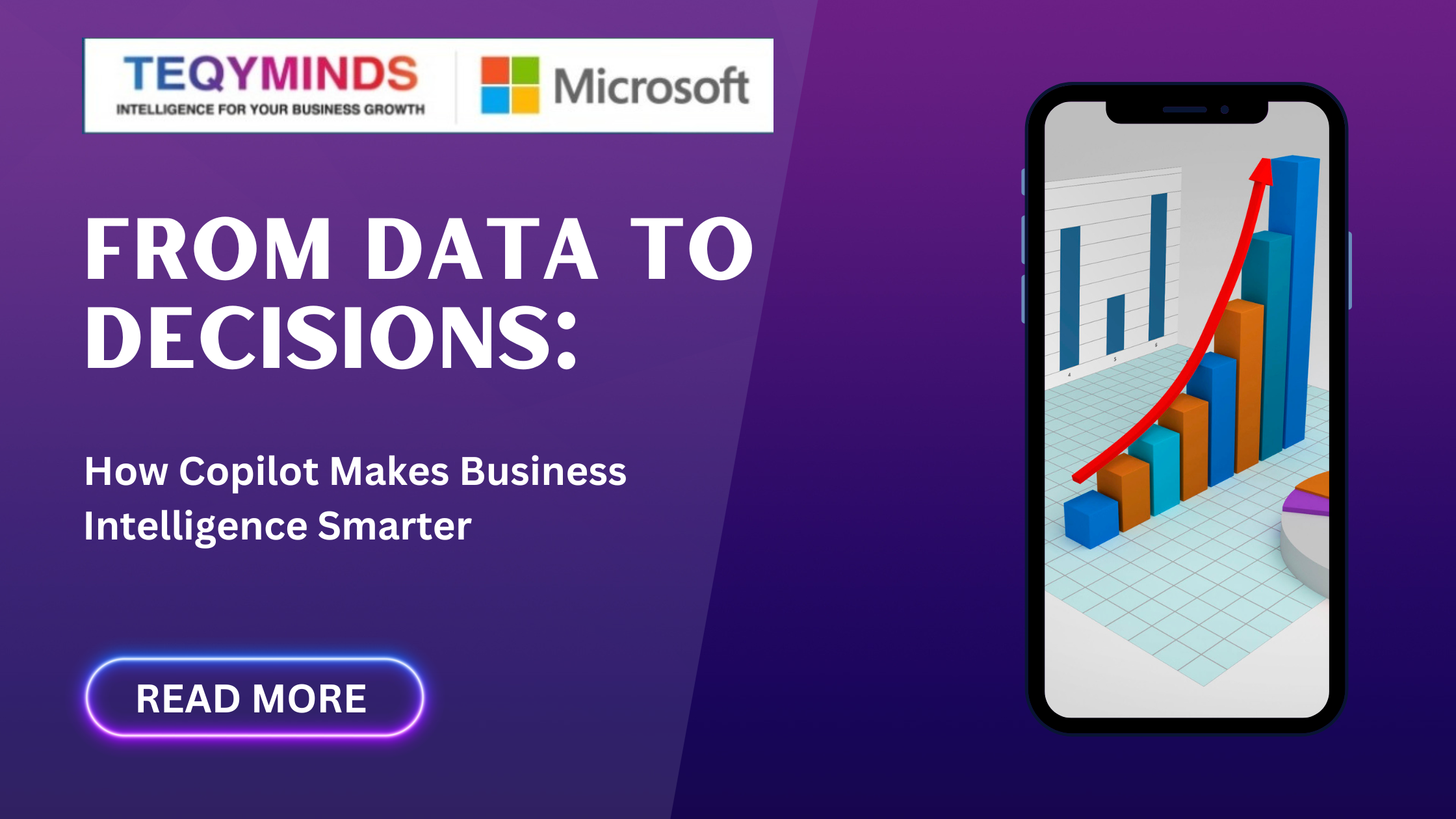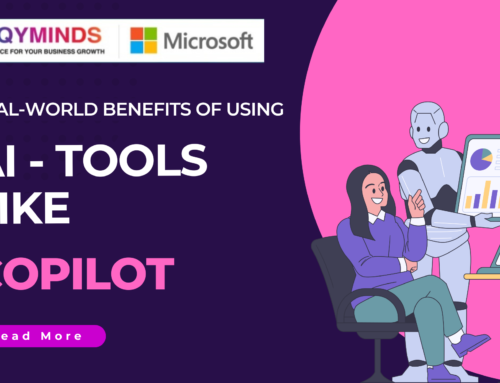In today’s data-driven world, businesses are flooded with information—sales figures, customer feedback, supply chain metrics, financial forecasts, and more. But raw data alone doesn’t drive success. The real power lies in transforming that data into actionable insights. That’s where Microsoft Copilot steps in, revolutionizing how organizations approach business intelligence (BI) by making it smarter, faster, and more intuitive.
Copilot isn’t just another AI tool—it’s a strategic companion embedded across Microsoft’s ecosystem, including Power BI, Excel, Dynamics 365, and Microsoft Fabric. It helps users—from data analysts to decision-makers—extract meaning from complex datasets, automate reporting, and uncover trends that would otherwise remain hidden. Whether you’re in manufacturing, retail, healthcare, finance, or supply chain, Copilot bridges the gap between data and decisions with remarkable clarity and speed.
The Shift from Manual BI to Intelligent Assistance:-
Traditional BI workflows often involve manual data cleaning, repetitive report generation, and hours spent building dashboards. While tools like Power BI have streamlined visualization, the process still demands technical expertise and time. Copilot changes the game by introducing natural language interaction, automation, and contextual intelligence.
Imagine asking, “What were our top-performing products last quarter in the UAE?” and instantly receiving a visual breakdown, complete with filters and trend analysis. No need to write DAX formulas or dig through tables—Copilot understands your intent and delivers insights in seconds.
Embedded Intelligence Across the Microsoft Stack
Copilot’s strength lies in its deep integration across Microsoft platforms. In Power BI, it helps users generate reports, summarize dashboards, and even suggest new KPIs based on historical data. In Excel, it automates formula creation, highlights anomalies, and builds pivot tables with conversational prompts. In Dynamics 365, Copilot can analyze customer interactions, predict sales outcomes, and recommend next-best actions—all within the CRM or ERP interface.
This seamless experience means users don’t have to switch tools or learn new interfaces. Copilot works where they already are, enhancing productivity without disrupting workflows. For organizations managing complex operations across geographies—like those in Dubai and India—this consistency is a game-changer.
Smarter Insights with Natural Language and Context
One of Copilot’s most transformative features is its ability to understand natural language. Users can ask questions like “Why did revenue dip in March?” or “Show me customer churn trends in retail,” and receive contextual answers backed by data. Copilot doesn’t just pull numbers—it explains them, often suggesting possible causes or highlighting related metrics.
Accelerating Time-to-Insight
Speed matters in business. Whether responding to market shifts, customer feedback, or supply chain disruptions, timely insights can mean the difference between leading and lagging. Copilot dramatically reduces time-to-insight by automating data prep, suggesting relevant visuals, and surfacing trends proactively.
For example, in a retail setting, Copilot might detect a sudden drop in sales for a product category and alert the team with a suggested root cause—like a stockout or pricing issue.
Enhancing Collaboration and Decision-Making
Business intelligence isn’t just about individual insights—it’s about shared understanding. Copilot enhances collaboration by making data more accessible and explainable. Teams can co-author reports, annotate dashboards, and even generate executive summaries for meetings—all with Copilot’s help.
Real-World Impact Across Industries
Let’s look at how Copilot transforms BI across different sectors:
- Retail: Copilot helps analyze customer behavior, optimize inventory, and personalize marketing campaigns to drive sales. It can identify top-selling products, predict seasonal demand, and recommend pricing strategies—all in real time.
- Manufacturing: From monitoring equipment performance to tracking supply chain metrics, Copilot enables predictive maintenance and operational efficiency. It can correlate production delays with supplier issues and suggest process improvements.
- Healthcare: Copilot supports patient care by analyzing treatment outcomes, resource utilization, and appointment trends to inform effective decision-making. It helps administrators make data-driven decisions that improve service quality and reduce costs.
- Finance: In banking and insurance, Copilot streamlines risk analysis, fraud detection, and financial forecasting. It can highlight anomalies in transactions and recommend compliance actions.
- Supply Chain: Copilot tracks shipments, forecasts demand, and identifies bottlenecks. It enables real-time visibility and smarter logistics planning.
These examples show how Copilot adapts to industry-specific needs while maintaining a consistent, user-friendly experience.
Security, Governance, and Trust
With great power comes great responsibility. Copilot is built on Microsoft’s trusted cloud infrastructure, ensuring enterprise-grade security, compliance, and data governance. Role-based access controls, encryption, and audit trails protect sensitive information while enabling collaboration.
Organizations can also customize Copilot’s behavior—defining what data it can access, how it responds to queries, and which users can interact with it. This flexibility ensures that Copilot aligns with internal policies and regulatory requirements.
Conclusion
Business intelligence is no longer just about charts and tables. It’s about understanding, agility, and action. Microsoft Copilot brings a new dimension to BI by making it conversational, contextual, and collaborative. It empowers users to ask better questions, get faster answers, and make smarter decisions—regardless of their technical background.






Leave A Comment